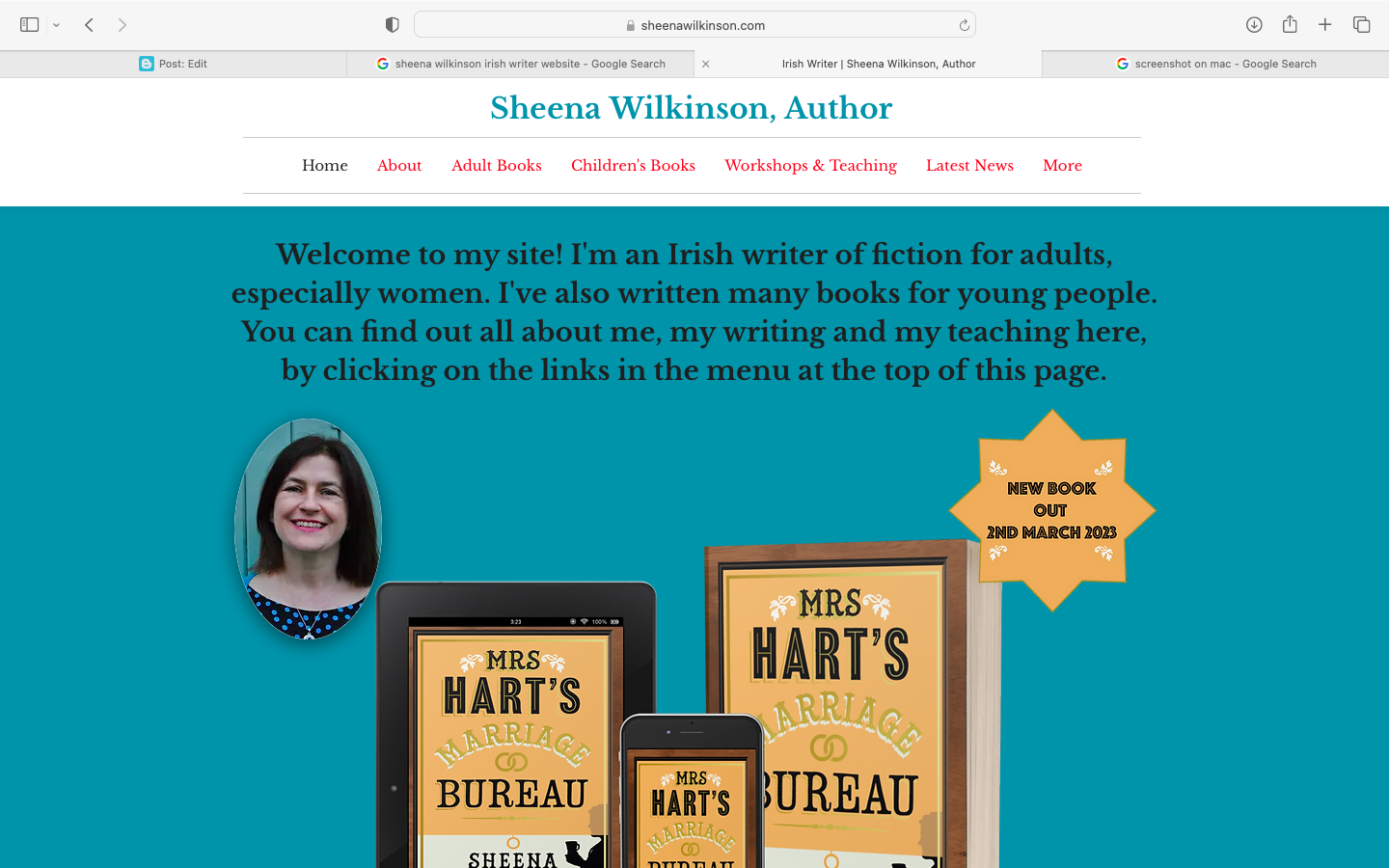I’m proud. But I’m also embarrassed.
Proud of my lovely new website, launched a few weeks ago, and the result of lots of hard work from both me and Emma Pass, who as well as being a RNA-shortlisted author, and generally fabulous person, also happens to be a wonderful web designer. Qualities for this last, as well as being able to do Hard Computery Things, include being calm and methodical in the face of Panicking Author. The Panicking Author was, of course, me.
So why am I embarrassed? Well, it’s 2023. I’ve been published since 2010 – in fact, if you count short stories and a book of literary criticism, since 2007. And though I have described www.sheenawilkinson.com as my ‘new’ website, I suppose I mean simply ‘my website’. In other words, yes, it really has taken me this long to get one.
I can’t explain why. I’m not a complete technophobe: I manage to blog on here regularly and I promise I am not that Zoom participant who can’t make her camera work. I make good presentations about my books to show at events. I bought the domain name back in about 2011, thinking vaguely that I would get round to building a site one day. Soon. Sometime. People told me it was easy. Every year I put ‘make a website’ at the top of my New Year’s Resolutions. Every year I failed. It became, I suppose, a kind of mental block. I would feel frustrated at festivals or school visits when I was introduced with an out of date or inaccurate biography, instead of the one I had sent, but of course that was largely my own fault: if I’d had a website I would have had more control.
Then last year I got my first deal for an adult novel. Mrs Hart’s Marriage Bureau comes out on 2 March from HarperCollins Ireland. And it would be mortifying not to have a website. My teen readers mightn’t have bothered much, but I knew adults would expect to be able to go to a one-stop shop to find out more about me, especially as they would probably not have heard of me. This is a major development in my career, and I needed a website to reflect that.
The book was due to be announced in January, which gave me a deadline – we all need those. I booked Emma, started writing copy, and gradually, with me supplying the words and Emma doing all the techy/designy things, we went live about ten days ago.
It makes me feel so grown up. (I’m 54.) It makes me feel so like a real writer. (I’m just about to publish my ninth novel/tenth book.) I love having the link to it as my email signature. It's great being able to say to people who approach me about school visits, etc. The information is all on my website.
Yesterday I had my first approach through the contact form, apart from a couple from friends to test it was working. And yes, it made me feel like a real person with a website.
Sad, maybe, to have been so backward. And of course I’m such a late developer that probably websites are very last decade. But I don’t care. And I’m posting about it to say that if anyone else out there has been reluctant to set up their website, please don’t be. It’s such a lovely feeling to have something online that’s completely your own.
And do feel free to stop by!















